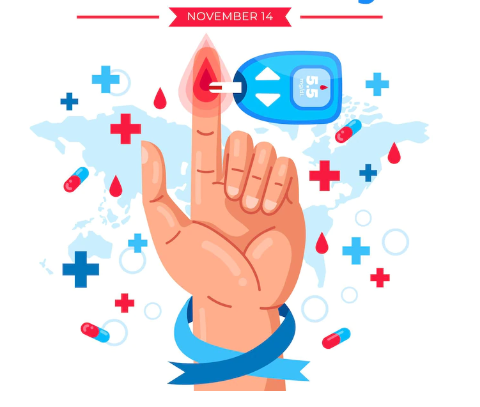World Diabetes Day is the primary global awareness campaign focusing on diabetes mellitus and is held on 14 November each year.
Diabetes is a condition where your body’s glucose levels is too high. This can happen when your body doesn’t produce the required amount of insulin or that the insulin the body does produce is not fit for purpose. Or your body can stop producing insulin entirely.
There are two main types of Diabetes: type 1 and type 2.
Type 1 is when your body fails to produce insulin entirely. We all need insulin to survive as it completes the essential job of allowing glucose to enter our cells and fuel our bodies. There is no known cause or cure for Type 1 Diabetes. About 8% of people with Diabetes have type 1. It is a serious and lifelong condition.
Type 2 is when the insulin you produce doesn’t work effectively or you cannot make enough of it. Around 90% of people with Diabetes have type 2. It is a serious condition and can be lifelong in certain cases. The causes of type 2 are vast including lifestyle, diet and medical history.
When the body develops Diabetes there are a range of symptoms to be aware of. The easiest way to remember some of the most common is the 4T’S:
Toilet – Frequent Urination
Thinness – The body can experience unexplained weight loss
Thirst – Extreme Thirst
Tiredness – Extreme Fatigue
A diabetes diagnosis can bring a list of complications in the future. These complications can include eye problems, foot problems, heart attacks, kidney problems and nerve damage to name a few. These complications arise from prolonged periods of high blood sugar levels.

